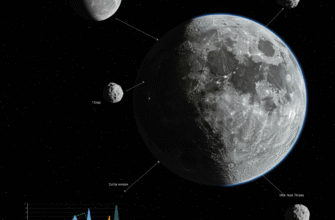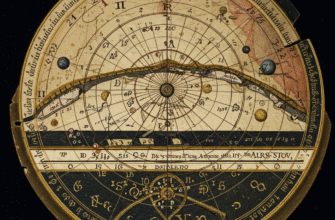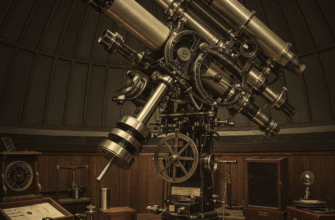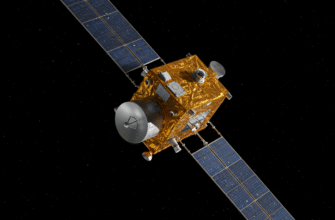The tapestry of ancient Chinese civilization is woven with threads of profound philosophical and cosmological thought, shaping not only its governance and social structures but also the very way its people perceived their place in the universe. Central to this worldview were the interconnected concepts of Tian, often translated as Heaven, and the Mandate of Heaven (Tianming), a powerful doctrine that dictated the legitimacy of rulers. These ideas provided a framework for understanding the cosmos, human responsibility, and the cyclical nature of power, influencing Chinese thought for millennia.
Understanding Tian: More Than Just the Sky
To comprehend ancient Chinese cosmology, one must first grasp the multifaceted nature of Tian. It wasn’t merely the physical sky above, nor was it a singular, anthropomorphic deity in the way some other ancient cultures conceived of their gods. While Tian evolved from earlier beliefs, particularly the Shang Dynasty’s supreme deity Shang Di, by the time of the Zhou Dynasty (circa 1046-256 BCE), it had transformed into a more abstract, yet deeply influential, cosmic principle.
The Evolving Nature of Tian
Initially, Shang Di was seen as a high god, perhaps an ancestral deity of the Shang rulers, who controlled victory in battle, harvests, and the weather. However, when the Zhou overthrew the Shang, they needed a broader theological justification for their rule, one that transcended mere ancestral worship. They promoted the concept of Tian as a universal, impartial higher power. This Tian was less a personal god with whims and more an overarching natural order, a moral force governing the universe and human affairs. It was seen as vast, all-encompassing, and intelligent, though its intelligence was expressed through the patterns of nature and the outcomes of human actions rather than direct pronouncements.
Tian was considered the ultimate source of moral law and order. It was believed to be inherently just, rewarding virtue and punishing wickedness. While impersonal, Tian was not indifferent. It was thought to observe humanity, particularly the conduct of rulers, and to intervene in human affairs to maintain harmony and righteousness. This intervention, however, was often indirect, manifesting through natural events or the collective will of the people.
Tian’s Influence and Manifestations
The influence of Tian was pervasive. It was the ultimate arbiter of fate, yet human action, especially moral action, could influence its workings. Natural disasters like floods, droughts, earthquakes, or even celestial phenomena like comets and eclipses were often interpreted as expressions of Tian’s displeasure or warnings to a wayward ruler or society. Conversely, periods of peace, prosperity, and good harvests were seen as signs of Tian’s approval. This belief fostered a deep sense of responsibility among rulers, who were expected to govern in accordance with Tian’s will to ensure the well-being of their people and the stability of the realm. The emperor, often referred to as the Son of Heaven (Tianzi), was not divine himself but was considered Tian’s chosen representative on Earth, tasked with maintaining harmony between the celestial and terrestrial realms.
This concept created a direct link between the actions of the ruler and the state of the kingdom. If the ruler was virtuous, benevolent, and competent, Tian would bestow its blessings. If the ruler became corrupt, tyrannical, or neglectful, Tian would show its displeasure, ultimately withdrawing its favor.
The Mandate of Heaven: A Divine Right with Conditions
Flowing directly from the concept of Tian was the doctrine of the Mandate of Heaven (Tianming). This was perhaps one of the most significant political and religious ideas in ancient China, providing a powerful justification for rule and, crucially, for rebellion against unjust rulers. The Zhou Dynasty first articulated this concept to legitimize their overthrow of the Shang Dynasty, arguing that the Shang rulers had become corrupt and cruel, thereby losing Tian’s favor.
The Granting and Revocation of the Mandate
The Mandate of Heaven was not an unconditional, hereditary right to rule in perpetuity. Instead, it was a divine sanction granted by Tian to a just and virtuous ruler who was capable of maintaining peace and prosperity for the people. The ruler, as the Son of Heaven, had a sacred duty to govern wisely, uphold moral principles, perform prescribed rituals, and care for the welfare of his subjects. If he fulfilled these duties, his rule was considered legitimate, and his dynasty would enjoy Tian’s protection.
However, the Mandate was not permanent. It could be, and often was, revoked. Signs that a ruler or a dynasty was losing the Mandate of Heaven included:
- Personal Corruption and Tyranny: If a ruler became decadent, cruel, or oppressive, exploiting the people for personal gain.
- Neglect of Governance: Failure to maintain order, administer justice, or provide for the basic needs of the populace.
- Widespread Suffering: Famines, social unrest, and economic hardship among the people were seen as indicators of poor governance.
- Natural Disasters: As mentioned, catastrophic events were often interpreted as tangible signs of Tian’s anger and withdrawal of support.
When these signs became overwhelmingly apparent, it was believed that Tian had withdrawn its Mandate from the current ruler and was seeking a new, more virtuous individual or family to take charge. This provided a moral and religious justification for rebellion. The success of a rebellion was itself seen as proof that Tian had indeed transferred its Mandate to the new leaders.
The Mandate of Heaven was not a static divine right but a dynamic cosmic approval granted to a ruler based on their virtue and ability to govern justly. Tian, or Heaven, observed the ruler’s conduct and the well-being of the people. If a ruler became tyrannical or incompetent, Tian could withdraw its Mandate, legitimizing rebellion and the rise of a new dynasty. This concept profoundly shaped Chinese political philosophy for millennia and underscored the ruler’s immense responsibilities.
The Mandate’s Impact on Governance and Society
The doctrine of the Mandate of Heaven had a profound impact on Chinese political thought and practice. It placed a significant ethical burden on rulers, reminding them that their power was contingent upon their moral conduct and effective governance. It encouraged rulers to be mindful of the people’s welfare, as popular discontent could be interpreted as a sign of Tian’s displeasure. This idea fostered a degree of accountability, albeit one enforced by the threat of cosmic disapproval and earthly rebellion rather than a formal democratic process.
Furthermore, the Mandate of Heaven explained and legitimized the dynastic cycle that characterized much of Chinese history. A new dynasty would rise, often led by a virtuous founder who was seen as having received the Mandate. Over time, subsequent rulers might become corrupt or incompetent, leading to the dynasty’s decline and eventual overthrow by a new group claiming the Mandate. This cyclical pattern of rise, flourishing, decline, and replacement was understood as the natural unfolding of Tian’s will.
The concept also influenced social stability. While it permitted rebellion, it did so under specific, morally justifiable circumstances. It wasn’t an open invitation to anarchy but rather a mechanism for correcting profound injustices and restoring harmony when a ruler had clearly failed in his duties to both Tian and the people.
The Symbiotic Relationship: Tian and Tianming
Tian and the Mandate of Heaven were inextricably linked, forming the bedrock of ancient Chinese cosmological and political legitimacy. Tian was the ultimate source, the conscious cosmic order that observed and judged. The Mandate of Heaven was the instrument through which Tian’s will was expressed in the human realm, specifically concerning governance. The ruler acted as an intermediary, the Son of Heaven, whose primary role was to align human society with the moral order of Tian.
This relationship was not one-sided. While Tian set the standards, human actions, particularly those of the ruler, had consequences that resonated with Tian. Virtuous rule maintained the harmony desired by Tian, while corrupt rule disrupted it, prompting Tian to seek a new agent to restore balance. This dynamic interplay emphasized a universe where human responsibility was paramount, even within a cosmos overseen by a higher power. The emperor’s annual sacrificial rites, such as those performed at the Temple of Heaven in Beijing (a later but historically connected practice), were symbolic acknowledgments of this deep bond and the ruler’s dependence on Tian’s continued favor.
The enduring power of these ideas lay in their ability to provide both a justification for authority and a check against its abuse. They offered a coherent explanation for the vicissitudes of fortune, the rise and fall of dynasties, and the moral obligations that bound rulers and subjects alike. For centuries, the notions of Tian and its Mandate shaped the ethical compass of Chinese governance, leaving an indelible mark on the civilization’s understanding of power, responsibility, and the cosmic order.









